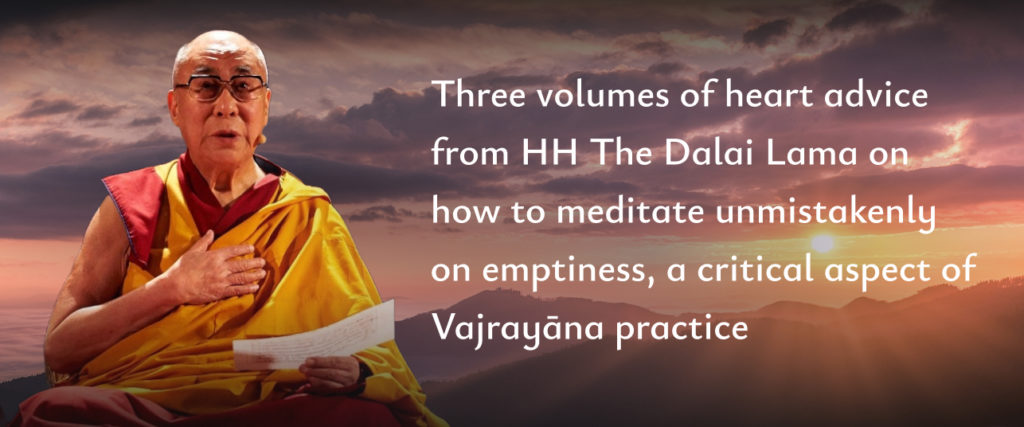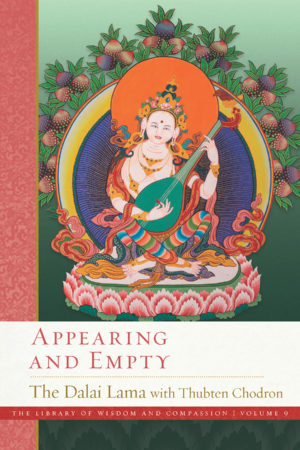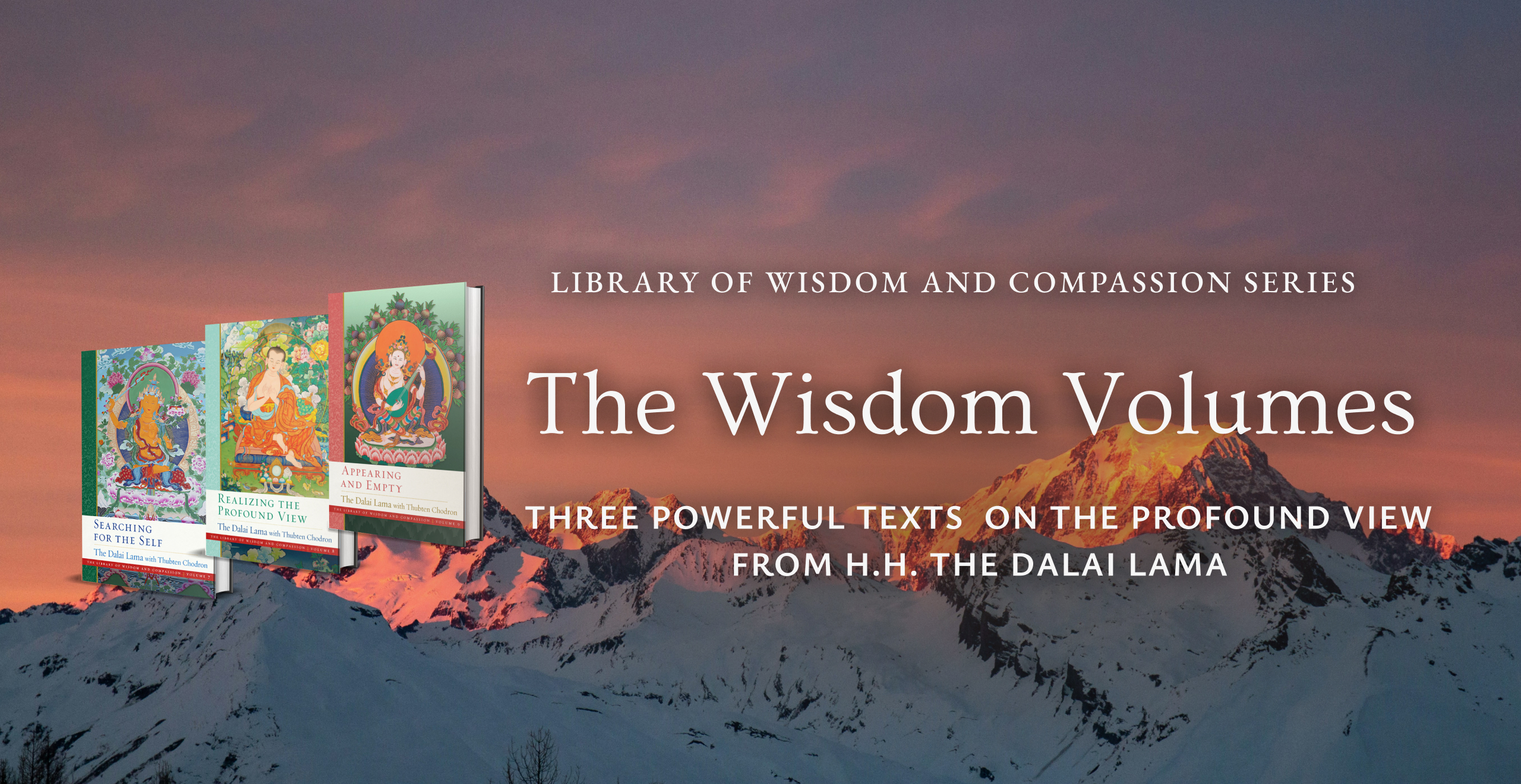
The Wisdom Volumes are three bestselling volumes—all centered around cultivating the wisdom realizing emptiness—that are drawn from the broader Library of Wisdom and Compassion series, a collaboration between HH The Dalai Lama and Ven. Thubten Chodron. These three powerful texts cover a range of related topics including how to identify the object of negation, why realizing emptiness is important (and how to do so), how the self really exists (and how it allows for the continuation of karmic imprints), and how to establish conventional existence in the context of a lack of inherent existence.
INSTRUCTIONS FOR CLAIMING YOUR DISCOUNT
[1] Scroll down and click the appropriate “Add to Cart” buttons to add whichever hardcover or ebook editions you desire to your cart
[2] Navigate to your shopping cart, then enter and apply the code provided in the email we sent you. Coupon codes are active for a limited time.
Explore the Bundle
INCLUDED TITLES
Searching for the Self
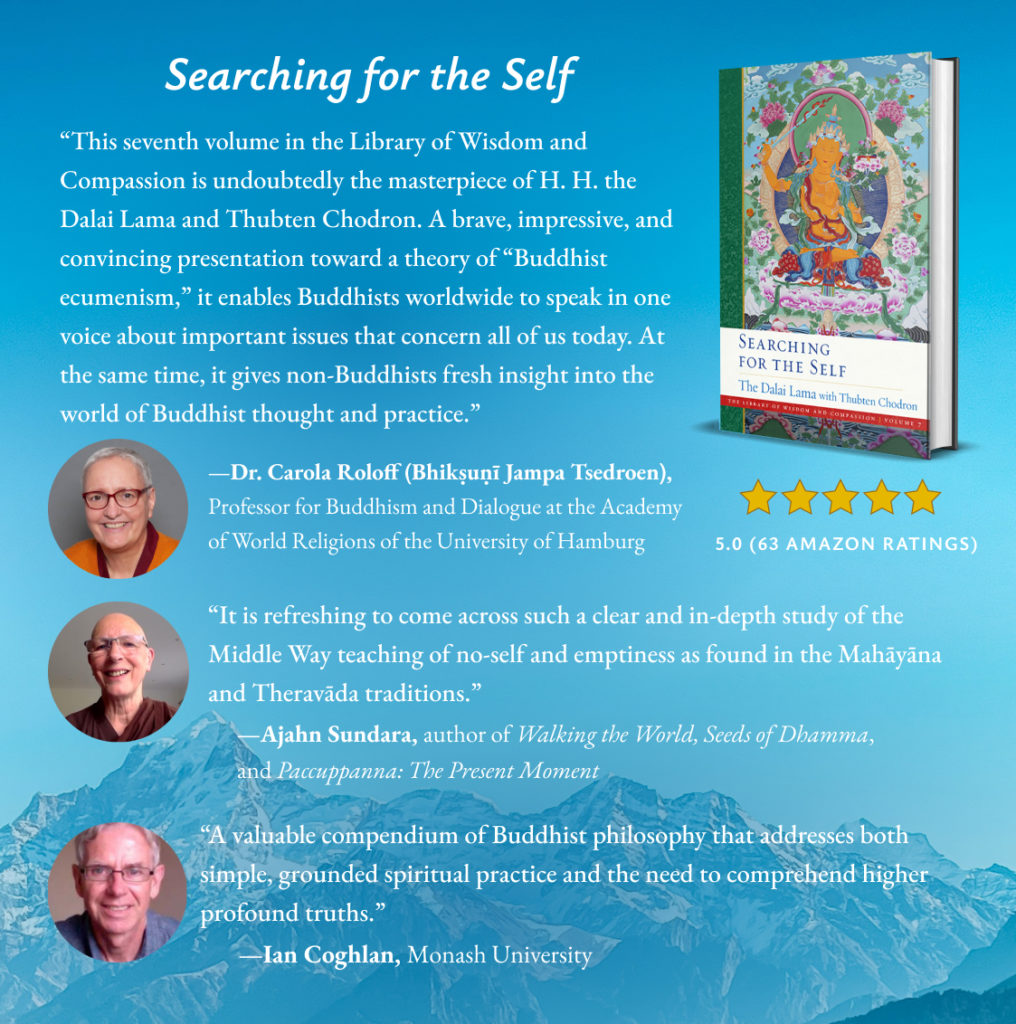
In this first volume in the bundle, the Dalai Lama leads us to delve deeply into the topic of the emptiness of inherent existence, presenting it from a variety of approaches while focusing on identifying our erroneous views and directing us to the actual mode of existence of all persons and phenomena. He explains why realizing emptiness is important and what qualities are needed to do that, and he evaluates various tenet systems’ perspectives on this vast topic. He then helps us understand our perceptions and the mental states involved in both our ignorant and accurate cognitions. The closing chapters discuss the three characteristics of impermanence, unsatisfactoriness, and not-self as explained in the Pāli tradition and show how meditation on these can lead to the meditative breakthrough to realize nirvāṇa.
Realizing the Profound View
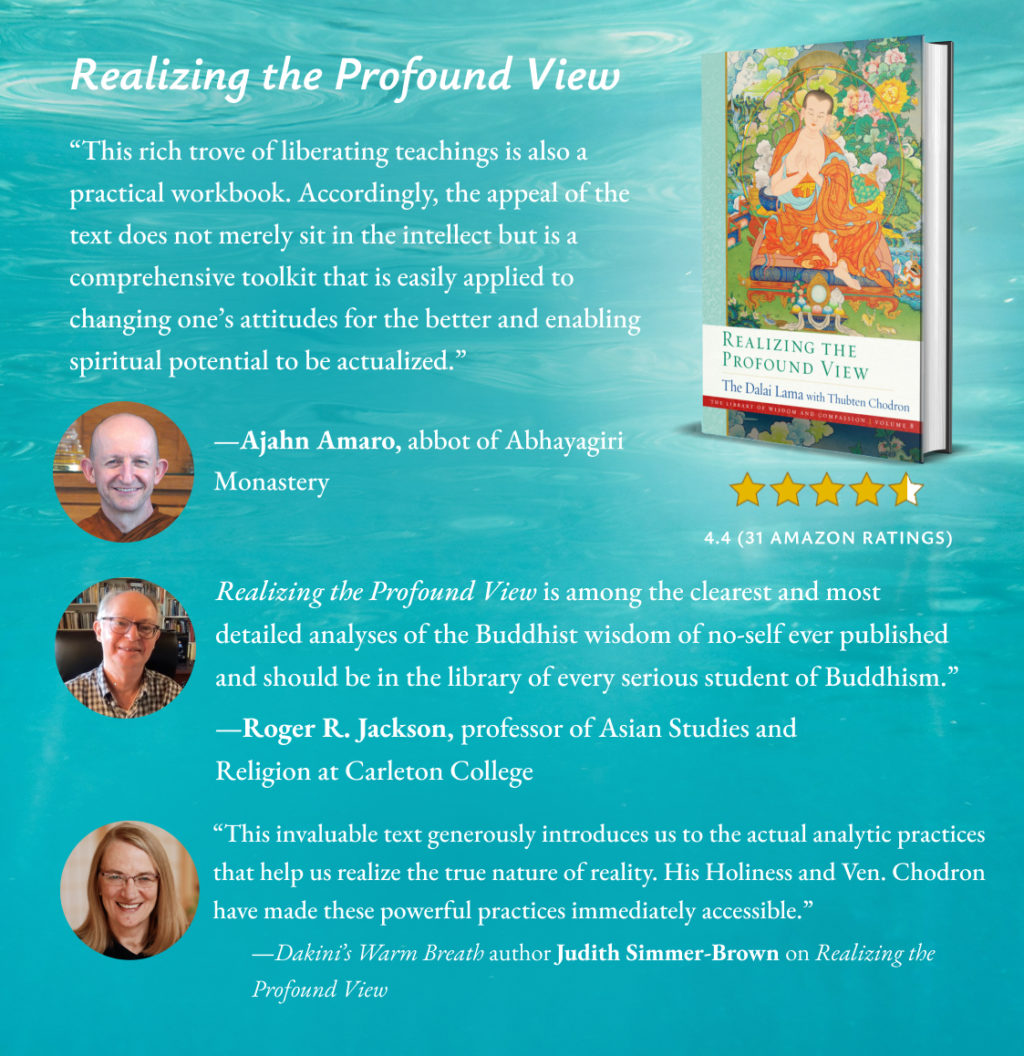
In this second of three volumes focusing on emptiness, the Dalai Lama presents the analysis and meditations necessary to realize the ultimate nature of reality. With attention to Nāgārjuna’s five-point analysis, Candrakīrti’s seven-point examination, and Pāli suttas, the His Holiness leads us to investigate who or what is the person. Are we our body? Our mind? If we are not inherently either of them, how do we exist, and what carries the karma from one life to the next? He skillfully guides us along the path avoiding the chasms of absolutism and nihilism and introduces us to dependent arising. We find that although all persons and phenomena lack an inherent essence, they do exist dependently as nominally imputed mere I’s that carry each individual’s karmic seeds.
Appearing and Empty
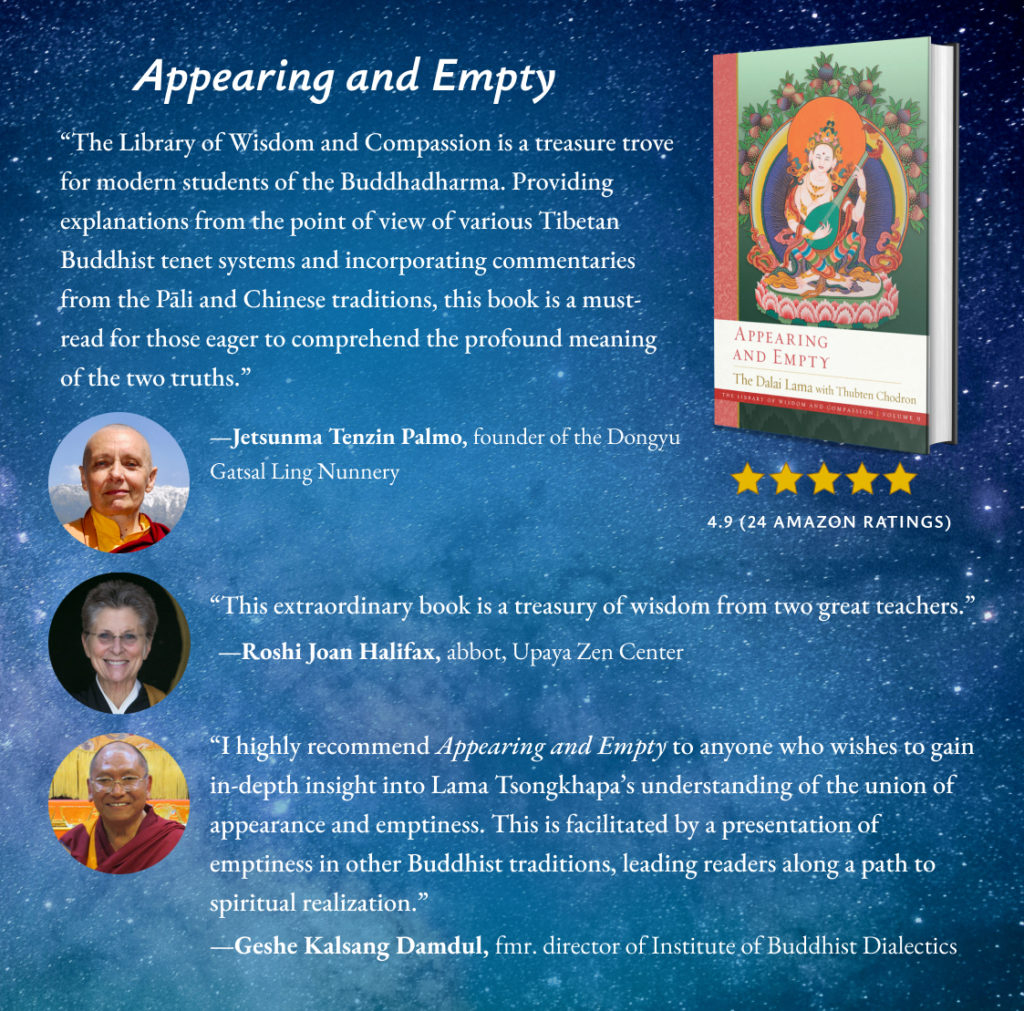
In this last of three volumes on emptiness, the Dalai Lama takes us through the Sautrāntika, Yogācāra, and Svātantrika views on the ultimate nature of reality and the Prāsaṅgikas’ thorough responses to these, so that we gain the correct view of emptiness—the selflessness of both persons and phenomena. This view entails negating inherent existence while also being able to establish conventional existence: emptiness does not mean nothingness. We learn how to meditate on the correct view by cultivating pristine wisdom that is the union of serenity and insight as taught in the Pāli, Chinese, and Tibetan traditions. We are also introduced to the tathāgatagarbha—the buddha essence—and how it is understood in both Tibet and China.
About the Authors

Tenzin Gyatso, the Fourteenth Dalai Lama, is the spiritual leader of the Tibetan people. He frequently describes himself as a simple Buddhist monk. Born in northeastern Tibet in 1935, he was as a toddler recognized as the incarnation of the Thirteenth Dalai Lama and brought to Tibet’s capital, Lhasa. He passed his scholastic examinations with honors before fleeing the Chinese forces to India in 1959. There he set up the Tibetan government-in-exile in Dharamsala, working to secure the welfare of the more than 100,000 Tibetan exiles and prevent the destruction of Tibetan culture. In his capacity as a spiritual and political leader, he has traveled to more than sixty-two countries on six continents and met with presidents, popes, and leading scientists to foster dialogue and create a better world. As a superior scholar trained in the classical texts of the Nalanda tradition of Indian Buddhism, he is able to distill the central tenets of Buddhist philosophy in clear and inspiring language, his gift for pedagogy imbued with his infectious joy.
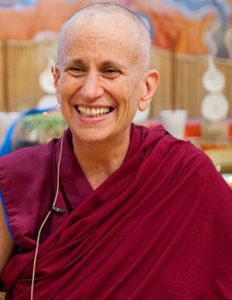
Ven. Thubten Chodron is an author, teacher, and the founder and abbess of Sravasti Abbey, the only Tibetan Buddhist training monastery for Western nuns and monks in the US. She graduated from UCLA, and did graduate work in education at USC. Ordained as a Tibetan Buddhist nun in 1977, she has studied extensively with His Holiness the Dalai Lama, Tsenzhap Serkong Rinpoche, and Kyabje Zopa Rinpoche.
Ven. Chodron teaches worldwide and is known for her practical (and humorous!) explanations of how to apply Buddhist teachings in daily life. She is also involved in prison outreach and interfaith dialogue. She has published many books on Buddhist philosophy and meditation, and has co-authored over 10 books with His Holiness the Dalai Lama.

